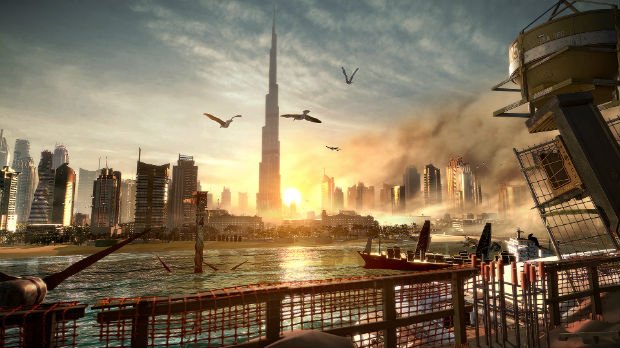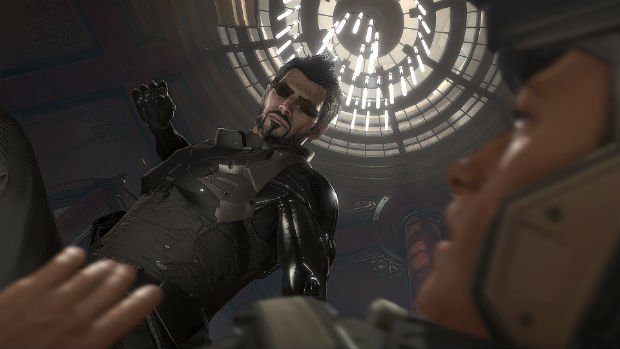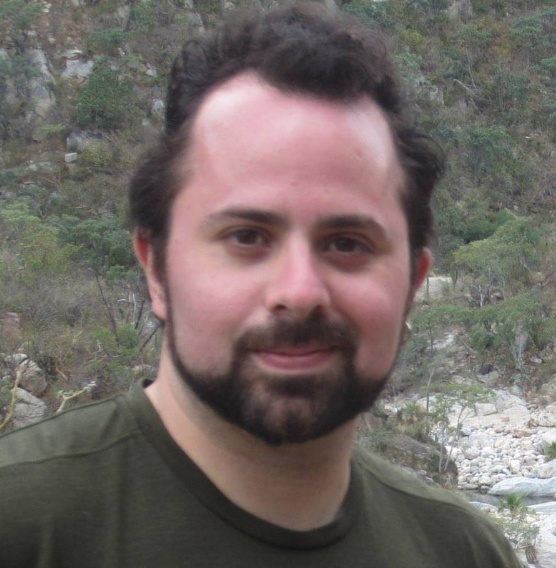Deus Ex: Mankind Divided is technically great... but nothing without its story
“What do you think?” asked Andre Vu, Eidos Montreal’s executive brand director on the Deus Ex series. Having just gotten out of a two-hour demo session with the game, I was pumped and primed to talk about Deus Ex: Mankind Divided. Even in just that sample size, that’s a lot of time in gruff cyborg Adam Jensen’s shoes. We raided a derelict hotel in Dubai together. We threw soldiers improbable distances to hide their unconscious bodies from their pals. We hacked stuff and admired the impressive (but not mindblowing) visual upgrade from 2011’s Deus Ex: Human Revolution.
Nonetheless, I had a tough time responding to Andre. Even though I spent two hours with my hands on a controller, moving through two different scenarios cherry-picked by the developer to demonstrate the myriad options for how Adam Jensen can engage the dangerous ruffians populating his grim cyberpunk future, I didn’t really play Mankind Divided. Without its story, without dialogue and fully fleshed out characters, even finished action sequences in Deus Ex feel like little more than prototypes that doesn't fully capture what its creators are truly great at. It's fun, definitely, but difficult to form any kind of connection with.

Saying that Mankind Divided feels empty when you engage it without its story might seem a bit like pointing out the obvious. It’s a role-playing game, after all. Of course it’s not going to feel quite right if you’re plopped into its stages with minimal context and a ready-made selection of character abilities and weapons. Plenty of RPGs can thrive with their action in a vacuum, though. The Witcher 3 can ensnare a player for hours with its wide-open wilderness even if old Geralt never runs into some gap-toothed farmer in need of aid. Final Fantasy 12 is practically at its best when you’re doing nothing but customizing your team and heading out into the desert to hunt beasts who never pipe up to tell you what they’re doing out there.
Yet both halves of the Mankind Divided demo lack the vital sinews that made Human Revolution one of the absolute best games from the past five years. The architecture is certainly there. The first half of the demo is pulled from the very beginning of the game, when Adam Jensen joins a non-cybernetic task force in raiding a crumbling hotel in Dubai. The city was ravaged during the crisis at the end of Human Revolution and it’s become derelict in the two years since. There’s a brief from the commander in charge of the mission – Jensen’s being sent in to rescue an undercover operative who’s trying to root out the source behind cybernetic augment weapon smuggling – and our famously goateed hero gets in some quips with another soldier, but it’s little more than a set up for sending you in with pre-selected gear. Do you prefer stealth powers (turning invisible) or offense (grenades implanted in your torso)? Long range weapons (sniper rifle) or up close and personal (pistol)?
After that it’s into the fray, and while it's a tutorial level, it still captures the essential flow of Eidos Montreal’s take on Deus Ex. There are plenty of air ducts to sneak through if you don’t want to take on the strangely fashionable, scarf-wearing arms dealers. There are a series of central, multi-tiered halls for you to sneak through and plenty of debris to take cover behind on your way. There’s even a heavily-guarded communications array for you to take out with the game’s largely unchanged hacking minigame if you find it and take care of its guards. Putting a cap on the whole thing is a semi-boss fight where some mysterious, gold-masked thugs show up and you have to stop their helicopter from taking off. (It was far too easy to just use the invisibility power, sneak up, and yank out the helicopter battery, but hey, a win’s a win.) It's good fun plowing through the hotel, especially once it's clear you can throw unconscious thugs impossible distances like fancy footballs without hurting them, but it's hard to connect with what is happening. Everything works, but something crucial is missing.
The second half of the demo shifts the scenery from sandy, sunny Dubai to rainy, dank Prague, but even with a change in color palette as well as a wider array of tools and paths to your goal, it's largely the same as the first. After choosing from a stealth, offense, or balanced load out, Jensen has to sneak into a heavily-guarded theater and get to the basement. At first, I kept testing all the routes to see what I could do. Hop up the roof and come in through the top, tranq-ing snipers and sniping the densest crowd of thugs around the stage, getting to the basement through back halls. Next time, sneak through a back alley, crawl in the window, then risk running out of augment power to invisibly sneak through the trap door below the theater stage.
The sequence is short enough, though, that I found myself speed running it, seeing how many people I could blow up. When the game ran into some inevitable pre-release glitches, it actually helped me explore further. At one point a hiccup in the game made it so the enemies couldn’t see Adam, so I could explore to my heart’s content, sussing out all the different approaches I could take to get to the basement goal line. The options in just this one little spot, one building in just one small chunk of the game’s final Prague, were deeply impressive. Free of the larger picture of the game, though, those options are just so many bones on a meatless skeleton.
Weekly digests, tales from the communities you love, and more

The Mankind Divided demo didn’t demonstrate that dialogue is the single best part of the series’ modern incarnation, though it was certainly missed. What it proved is that Eidos Montreal has a house style whose many components need to work in concert to have the greatest effect on the player. The absence of context in the Prague sequence – I didn’t even get to know who the hell was in charge of the theater Jensen was infiltrating – is only half the problem. The other is that this isn’t my Adam Jensen. Human Revolution’s richness only emerged as you leveled and augmented Adam around your personal style. I personally loved hacking computers and security to get through, but I also loved beefing up my strength so Adam could toss around huge metal objects. I want to be able to talk my way through confrontations, but I like it to be difficult so I don’t max out his persuasion augments.
The balance of action, character building, and steering the story is what makes Eidos Montreal’s games sing. Thief, the studio’s 2014 reboot of another famed RPG about player choice and customization, ultimately failed because it didn’t strike that balance in the finished product. Like this sample of Mankind Divided, the nuts and bolts were there. Architecture and a delicious loop of action, namely sneaking into places to lift some goods and sneaking back out, felt fantastic in Thief but the weak, almost absent story and lack of tactile character growth left those mechanical components feeling limp.
All demos are incomplete by their very nature, and lengthy games like RPGs fare especially poorly in short burst sessions. The demo for Mankind Divided shows the skeleton but none of the musculature that will truly make it move. What did I think of the game? I'll know when I get to be my own Jensen, making his way through the wreckage of 2029, negotiating and reading and building in addition to the back alley sneaking and fighting. The sneaking and fighting is good, but without the rest, they're just so many beautiful bones.



